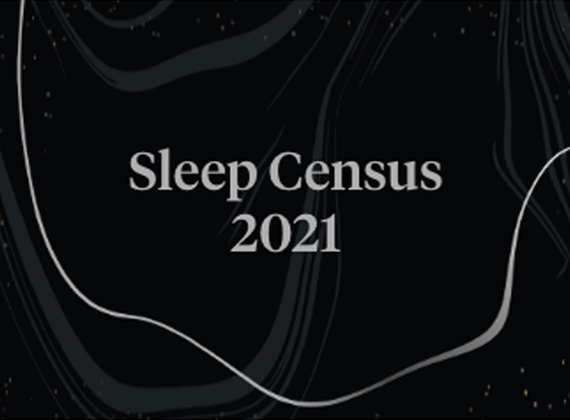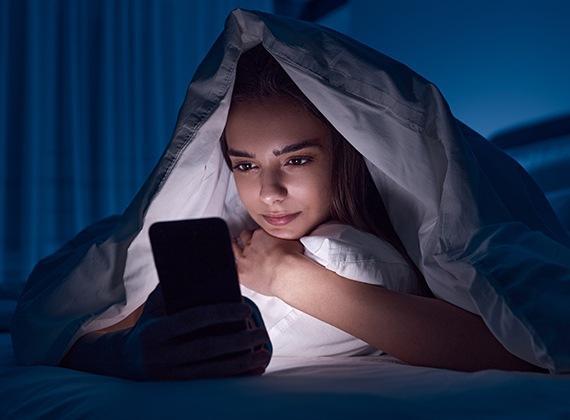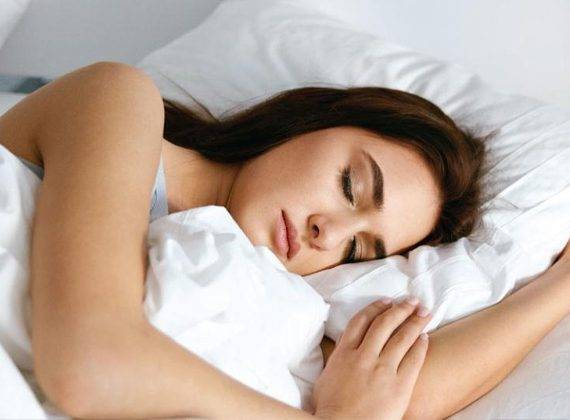New Zealand Sleep Census 2024
As part of Sealy’s Global Sleep Survey1 that explores the sleep habits of over 20,000 people worldwide, Sealy NZ conducted a follow-on from its 2021 New Zealand Sleep Census, with the aim to further understand how Kiwis are sleeping and to identify ways to improve sleep quality.
Sealy NZ lifts the covers on the results of this year’s Sleep Census alongside registered Clinical Psychologist Dr Kimberly Falconer. With an expertise in helping clients manage sleep issues in addition to anxiety, depression and more complex health concerns, and also having worked alongside Sealy NZ on our 2021 Sleep Census, Dr Falconer understands how New Zealanders are really sleeping.
With this year’s Sleep Census revealing that 90% of Kiwis believe our personal lives would benefit from better sleep, Dr Falconer provides her advice on improving your sleep quality and why that matters.
It can be daunting how everywhere we look these days, we are bombarded with advice and tips on how to live better, more fully and more productively. Certainly, the last thing we need is additional pressure around the one sanctioned area of rest within our 24-hour lot. However, whether it’s magazine covers, bestseller books, or social media trends, we are increasingly cornered with content on improving sleep. It’s almost become a competitive sport. Not only can Influencers tell you how to organise a pantry and fold a fitted sheet; they are now experts in how to achieve the perfect sleep routine. And with almost 60% of New Zealanders admitting they feel unrested when they wake up, it seems they have a captive audience.
Quite simply, the best advice is to consciously face the unconscious part of our day. We are all capable of becoming aware of our individual sleep needs and empowered in how we approach these. Start thinking about sleep as a form of fitness but in the most straightforward way you can. Yes, you could invest in expensive weights, protein supplements, and designer activewear; however, effective exercise simply boils down to moving your body regularly, which can be as simple as walking around the block. Sleep is much the same. While you could invest in pricey wearables, luxurious sleepwear, and sleep gadgets for every inch of your bedroom, sleep similarly doesn’t need to be complicated to be effective. Too often in clinical practice, we see a boomerang effect with many of the sleep strategies that are promoted. People become so obsessed with their routines and rules that the rigidity and overthinking become stressful and end up hampering their attempts at slumber.
The latest Sleep Survey showed that more than half of us are actually getting 7-8 hours of sleep; however, almost 4 out of 10 New Zealanders are getting less than 6 hours. Although there isn’t a discernible difference between men and women in terms of sleep duration, we do see a material difference in the effects the next day. Women are more likely to eat poorly, not stick to routines, cancel plans, and be irritable after a poor night’s sleep. In terms of mental health, both men and women recognise the negative effect poor sleep has on their emotions, although once again, women report higher rates of feeling anxious and depressed following periods of bad sleep. Results also suggest a trend for younger people to report more problems, than those in the 50+ age group.
Ditch the devices
The most recent Sleep Census also shines a spotlight on device use in our population. The majority of New Zealanders are on screens before bed and 76% of Kiwis leave their mobiles close to bed while sleeping, even though this corresponds with feeling less rested upon awakening. Device use before bed was also higher in NZ than Australia and much higher for the younger generation. Importantly, this was similar to the last Census three years ago where the majority of people felt their device use negatively impacted their sleep. So essentially – we haven’t changed.
From a clinical perspective it’s perhaps time to start thinking about a spectrum of improvements that can be made here. Simply going cold turkey on screens before bed seems difficult for most people and although a gold standard is no screens for 1-2 hours before bed, in clinical practice we help clients think about transitional options. For example, the first step might be putting your phone on silent and leaving it across the bedroom, out of reach.
Taking gradual steps towards improving your relationship with your device is both doable and empowering, and New Zealanders should engage in conversations around this. Be mindful and sensible not just about the quantity and timing of the device use, but also the quality of what you are doing on your phone and the level of stimulation it creates just before bed.
Spotlight on our love of caffeine
In terms of our other vice, 93% of New Zealanders consume caffeine daily and a majority have 2-3 units per day, and among the Global Sleep Survey results, we were the highest consumers of caffeine. Of note, 1 in 9 Kiwis who drink caffeine do so in the hour before bed and over 50% of Kiwis have their last caffeine drink less than 5 hours before bedtime.
Once again, a blanket ban doesn’t appear to be the answer here. In clinical practice we spend a lot of time encouraging clients to better understand their own personal sensitivity to caffeine, as it’s a biological response and we all differ in our tolerance. Get to know yourself and be mindful about the effects of consumption.
We also need to consider more than just coffee as the culprit here. Caffeine is found in many other food choices – tea and chocolate to name a couple. Think broadly about all your choices as there’s no point eliminating coffee if you’re having a buffet of snacks for a second dinner just before bed, or equally not having enough to eat throughout the day. Similarly, alcohol is a significant driver of poor sleep. So rather than blacklisting coffee, we encourage clients to think broadly across their dietic input for the whole day and how this can foster optimal rest and sleep efficiency overnight.
So how do we actually ‘invest in rest’ without signing up to more commitments, apps, and books? Firstly, it is important to recognise that for a subset of people, poor sleep represents an underlying sleep disorder and professional help is needed to address insomnia, sleep apnea, sleep phase disorders or other concerns. But for many people this isn’t the case, and poor sleep is something they can take into their own hands.
Investing in better rest is a priority given the benefits of sleep on broader physical health and the clear links to mental health and wellbeing. This begins with ensuring you’re sleeping on a bed that’s right for you and your needs. If you’re one of the 16% of New Zealanders who have had their mattress for over 10 years, which is beyond the recommended lifespan of 8-10 years, start your sleep refresh by understanding what bed is right for you through the Sealy Bed Selector tool.
Then, some basic knowledge about sleep efficiency and a commitment to good habits will see most people on their way to feeling empowered and effective in their relationship with sleep. The first step is about establishing ‘sleep fitness’, and the second step is maintaining this and prioritising sleep as a protected health marker in your life.
1. Importance of sleep efficiency
One of the golden questions is “how many hours of sleep should you get?”. Unfortunately, a focus on sleep duration often misses the point. In clinical practice we focus instead on a concept called sleep efficiency which is the percentage of time in bed you actually spend asleep. So, although you might be sleeping 7 hours a night, if you are spending 10 hours in bed to achieve this, it’s a problem and can put you at risk of insomnia. Healthy sleep has an efficiency of at least 90% and it’s important to understand your own sleep need to achieve this level. It’s a very individualistic thing. And quite simply, keep every other activity out of your bed(room) to enhance your chances of achieving a great efficiency score.
2. Habits and lifestyle factors make the biggest difference
Sometimes the biggest problems can have the simplest solutions and although severe sleep disturbances need professional intervention, the steps taken to improve your sleep are both logical and relatively easy.
Think about three key aspects.
- Firstly, stick to a regular wake up time and try not to vary this across the week or weekend, no matter what you are doing. This helps to support a healthy circadian rhythm and biological clock. Regular mealtimes also support this.
- Secondly, try to ensure you are doing enough in the day to support a strong sleep drive (caused by the build-up of adenosine within your brain). Regular exercise and activity and importantly, the avoidance of daytime sleeping is key here.
- And finally, use light to your advantage to ensure your natural melatonin is optimal and supports good sleep at the end of the day. Get into the light as soon as you wake up and avoid light towards the end of the day. The caveman approach here is a principle we can somewhat hark back to. Artificial light is exactly that – artificial. So be mindful of limiting screen use and blue light in the lead up to bed, as they inhibit your natural melatonin production and hamper your chances of a good night’s sleep.
3. Lead by example
The most recent NZ Health Survey found that more than 1 in 5 children are getting less sleep than recommended. The current Sealy Census also showed that device use before bed is significantly higher in younger age groups. Interestingly this is not just a generation-effect, as New Zealand fared a lot worse than our Australian neighbours on this measure. In clinical practice we are also seeing an increasing number of children struggling with erratic bedtimes either as a consequence of sleep drive issues, or perhaps as a result of busy lifestyles or living across blended households with different routines.
In paediatric populations the circadian rhythm is evolving and although we recognise the teenage tendency to sleep in, if not managed appropriately we can start to see detrimental effects.
Social jet lag can be one such consequence. This is where young people start to experience phase shifts in their sleep pattern, and it becomes extremely difficult to get up for regular weekday and school activities. Research has started to show links between social jetlag and negative health outcomes. Work hard with the young people in your life to help them prioritise good routines around sleep with an emphasis on consistency. The tips above are especially important for this growing age group.
In clinical practice we primarily see children at the bottom of the cliff, desperate for medication or more drastic interventions after long periods of poor sleep and routine. Perhaps it’s time to finally start having more conversation about healthy sleep for young people and some of the very straightforward steps that can be taken to prevent serious and chronic issues. An ounce of prevention is worth a pound of cure.
From fostering healthier bedtime routines to investing in quality sleep surfaces, you have the power to make small changes today to wake up feeling ready to tackle the day tomorrow.
Whether you’re a side-sleeper (like 61% of us), a back-sleeper (14%) or you like to mix it up (13%), we wish you sweet dreams – however you sleep!
About Dr Kimberly Falconer
DCLINPSYCH / FAMILY THERAPY GRAD CERT (KING’S COLLEGE LONDON)
Kimberly is a Clinical Psychologist based in Auckland. After completing her Doctorate, she worked overseas in the United States and the UK. During her time in the US, Kimberly trained at the Beck Institute for Cognitive Therapy and worked at the University of Pennsylvania. While living in the UK, Kimberly pursued postdoctoral training in family therapy at the Institute of Psychiatry, King’s College London. She also worked in a variety of NHS settings across London, including specific work and clinical training at the Maudsley Hospital.
Kimberly has worked across a range of settings in New Zealand, including many years as a Clinical Psychologist in a child and adolescent family service with sub-specialties in neuropsychology and childhood eating disorders. More recently she has worked as the Sleep Psychologist at NZRSI providing CBT-I to clients struggling with severe insomnia and other sleep disorders. She also works as a Senior lecturer in postgraduate psychology at Massey University.
Kimberly is experienced in working with clients of all ages and has specific expertise in helping clients manage sleep issues in addition to anxiety, depression and more complex mental health concerns. Kimberly primarily practices Cognitive Behavioural Therapy, however she also incorporates other evidence-based treatments including Mindfulness, Dialectical Behaviour Therapy, Acceptance & Commitment Therapy and Family/ Couples Therapy. Kimberly is focused on tailoring her treatment to ensure clients feel empowered, hopeful and well supported.
1 Conducted by Quantum Market Research (QMR) from 29 August – 21 September 2023 with 20,000 participants aged 18+ across New Zealand, Australia, United Kingdom, China, Hong Kong, Singapore, Malaysia, South Korea and Taiwan. Australia/New Zealand sample size n=5,865 with data weighted to be representative of Australia and New Zealand populations.
You may also like ...
Sleep is essential for health and well-being – your sleep can be improved by making a few simple changes.
Find out more about the benefits of going to bed at a similar time every night, even on the weekends!




